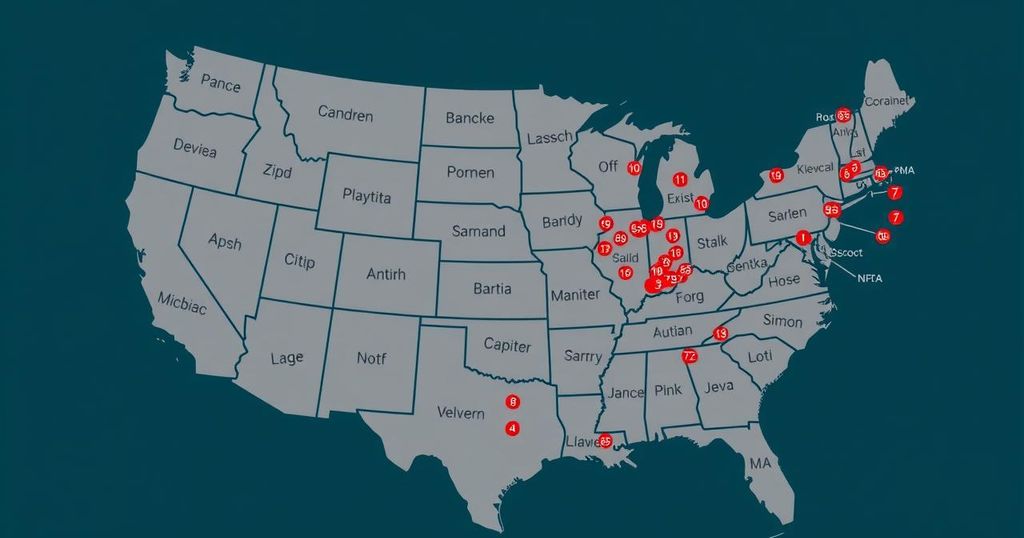In a disappointing turn for election reform advocates, voters across the U.S. rejected significant initiatives aimed at altering voting procedures, despite over $110 million in funding. Proposals for ranked choice voting and open primaries were denied in various states, indicating a preference for traditional voting methods. Activists are now reassessing their approaches in light of the recent defeats.
On Election Day, voters across the United States decisively rejected significant election reform measures, despite a substantial investment of over $110 million by advocates. Initiatives included proposals for ranked choice voting and open primaries, which were intended to enhance voter choice by allowing all party candidates on the same ballot, as well as enabling voters to rank candidates in order of preference. The reforms were met with resistance, as residents of various states including Arizona, Colorado, and Nevada rejected these changes, signaling a preference for traditional voting methods.
Activists had initially expressed optimism that the public’s frustration with the political status quo would lead to success for these initiatives. However, John Opdycke, president of Open Primaries, remarked, “It turns out, in retrospect, we weren’t yet ready for prime time.” Despite past momentum following Alaska’s approval of ranked choice voting in 2020 and initial support in Nevada, these recent rejections underscore a complex relationship between public sentiment and reform efforts.
Ranked choice voting has been implemented in several jurisdictions, yet data indicates it rarely alters outcomes significantly from conventional voting. For instance, of nearly 150 races analyzed, only 30% required ranked choice voting after initial tallies, suggesting that traditional plurality outcomes often prevail. The mixed reception, particularly in states like Oregon, highlights confusion among some voters about the ranking method.
Academics have expressed concerns regarding the efficacy of ranked choice voting, pointing out disparities in how different demographic groups engage with this method. Larry Jacobs of the University of Minnesota indicated a potential shift in societal attitudes towards ranked choice voting, stating, “I think the tide for ranked choice voting is turning away from it.”
Despite these setbacks, advocates are contemplating strategic revisions to their approach. They may consider separating initiatives aimed at eliminating partisan primaries from those seeking to introduce ranked choice voting, as well as pivoting towards more incremental legislative changes instead of amending state constitutions. Reflections on grassroots support emphasize the need for foundational engagement prior to large-scale campaigns. Unite America, a key financial supporter of these initiatives, is actively reviewing feedback and survey data to inform future strategies. As articulated by Nick Troiano, Executive Director of Unite America, the inquiry now focuses on the method of achieving success rather than the question of whether to proceed with these reform efforts.
The article discusses the recent elections in the U.S. where voters rejected a variety of election reform initiatives, emphasizing a significant financial commitment from advocacy groups. While there was anticipation for broader acceptance of voting reforms aimed at increasing voter choice, the outcomes reflected a strong adherence to traditional voting systems. The text explores the implications of these results on future reform efforts and public willingness to adopt alternative voting methods.
In summary, the rejection of various election reform measures across the United States illustrates a prevailing preference for conventional voting practices despite substantial financial backing and advocacy efforts. As proponents reflect on the recent outcomes, a reevaluation of strategies may be necessary to align reform initiatives with the needs and expectations of the electorate. The future of such reforms remains uncertain, hinging on the ability of advocates to foster grassroots support and gradually introduce changes within the political framework.
Original Source: abcnews.go.com






